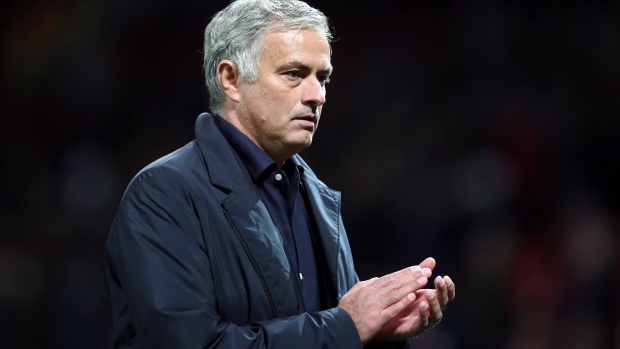Oct 4, 2018
Mourinho stock still above water as Manchester United flounders
, Bloomberg News

There’s turmoil at the heart of England’s most valuable soccer team, Manchester United -- but coach Jose Mourinho still looks like a winner for investors.
Even though the club’s shares have slumped 17 per cent since reaching a record high on the last day of August, they’re up 27 per cent since the Portuguese manager took over in May 2016.
With Manchester United languishing in 10th place of the English Premier League and licking its wounds from a humiliating defeat by second-tier Derby County, Mourinho has openly criticized management over player acquisition strategy and taken a pop at some of his most valuable assets, including the 89 million-pound (US$116 million) signing Paul Pogba.
On-field fluctuations, and the seismic knocks to revenue they can bring about, are one reason why few soccer clubs are publicly owned. In the 1990s in England, a host of clubs including Chelsea, Tottenham Hotspur and Leeds United, joined the stock market, but most have retreated into private hands.
Manchester United hasn’t suffered anything like their fate, but it’s been shown up lately by the new home of one of its former prodigies, Cristiano Ronaldo. Juventus Football Club SpA’s stock price doubled over the summer, as news of the Portuguese forward’s arrival emerged.
Juventus, controlled by Italy’s Agnelli family -- the biggest investors in carmaker Fiat Chrysler Automobiles NV -- has risen sixfold since 2013 as revenue from player sales, the team’s Champions League performances, an increased focus on international merchandising and rising investment in Italian soccer clubs by Asian investors all buoyed its outlook.






